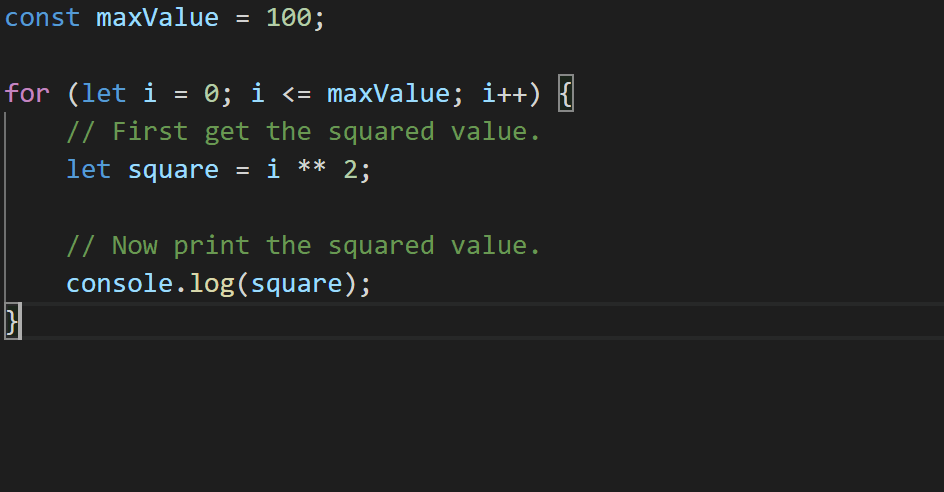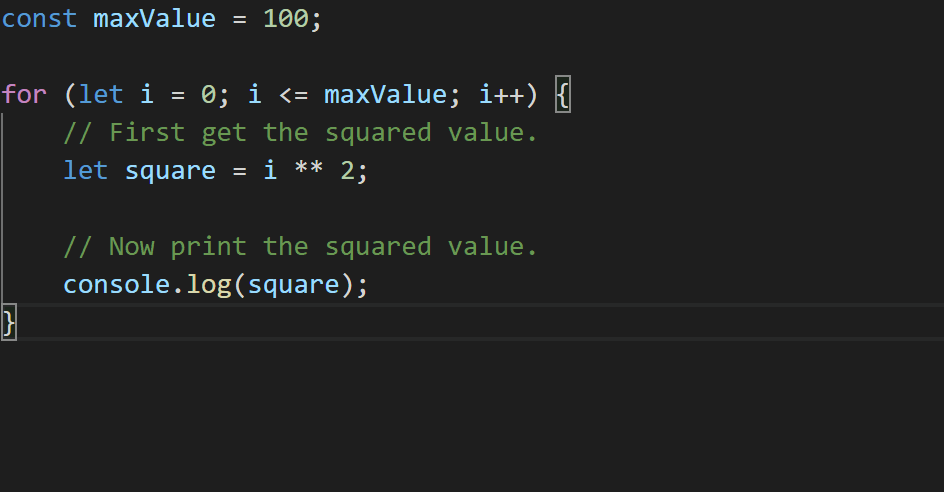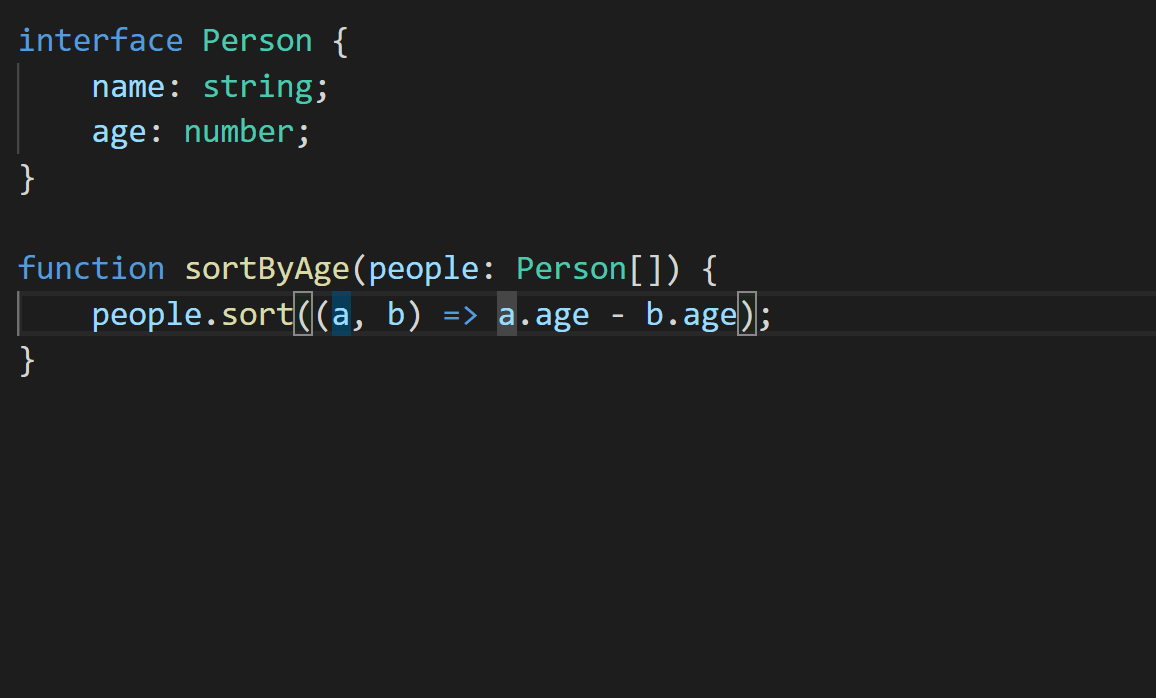# 改进类型推断和 Promise.all
TypeScript 的最近几个版本(3.7 前后)更新了像 Promise.all 和 Promise.race 等的函数声明。
不巧的是,它引入了一些回归问题,尤其是在和 null 或 undefined 混合使用的场景中。
interface Lion {
roar(): void;
}
interface Seal {
singKissFromARose(): void;
}
async function visitZoo(
lionExhibit: Promise<Lion>,
sealExhibit: Promise<Seal | undefined>
) {
let [lion, seal] = await Promise.all([lionExhibit, sealExhibit]);
lion.roar();
// ~~~~
// 对象可能为'undefined'
}
这是一种奇怪的行为!
事实上,只有 sealExhibit 包含了 undefined 值,但是它却让 lion 也含有了 undefined 值。
得益于 Jack Bates (opens new window) 提交的 PR (opens new window),这个问题已经被修复了,它改进了 TypeScript 3.9 中的类型推断流程。
上面的例子中已经不再产生错误。
如果你在旧版本的 TypeScript 中被 Promise 的这个问题所困扰,我们建议你尝试一下 3.9 版本!
# awaited 类型
如果你一直关注 TypeScript,那么你可能会注意到一个新的类型运算符 awaited (opens new window)。
这个类型运算符的作用是准确地表达 JavaScript 中 Promise 的工作方式。
我们原计划在 TypeScript 3.9 中支持 awaited ,但在现有的代码中测试过该特性后,我们发现还需要进行一些设计,以便让所有人能够顺利地使用它。
因此,我们从主分支中暂时移除了这个特性。
我们将继续试验这个特性,它不会被包含进本次发布。
# 速度优化
TypeScript 3.9 提供了多项速度优化。
TypeScript 在 material-ui 和 styled-components 代码包中拥有非常慢的编辑速度和编译速度。在发现了这点后,TypeScript 团队集中了精力解决性能问题。
TypeScript 优化了大型联合类型、交叉类型、有条件类型和映射类型。
- https://github.com/microsoft/TypeScript/pull/36576 (opens new window)
- https://github.com/microsoft/TypeScript/pull/36590 (opens new window)
- https://github.com/microsoft/TypeScript/pull/36607 (opens new window)
- https://github.com/microsoft/TypeScript/pull/36622 (opens new window)
- https://github.com/microsoft/TypeScript/pull/36754 (opens new window)
- https://github.com/microsoft/TypeScript/pull/36696 (opens new window)
上面列出的每一个 PR 都能够减少 5-10% 的编译时间(对于某些代码库)。
对于 material-ui 库而言,现在能够节约大约 40% 的编译时间!
我们还调整了在编辑器中的文件重命名功能。
从 Visual Studio Code 团队处得知,当重命名一个文件时,计算出需要更新的 import 语句要花费 5 到 10 秒的时间。
TypeScript 3.9 通过改变编译器和语言服务缓存文件查询的内部实现 (opens new window)解决了这个问题。
尽管仍有优化的空间,我们希望当前的改变能够为每个人带来更流畅的体验。
# // @ts-expect-error 注释
设想一下,我们正在使用 TypeScript 编写一个代码库,它对外开放了一个公共函数 doStuff 。
该函数的类型声明了它接受两个 string 类型的参数,因此其它 TypeScript 的用户能够看到类型检查的结果,但该函数还进行了运行时的检查以便 JavaScript 用户能够看到一个有帮助的错误。
function doStuff(abc: string, xyz: string) {
assert(typeof abc === 'string');
assert(typeof xyz === 'string');
// do some stuff
}
如果有人错误地使用了该函数,那么 TypeScript 用户能够看到红色的波浪线和错误提示,JavaScript 用户会看到断言错误。 然后,我们想编写一条单元测试来测试该行为。
expect(() => {
doStuff(123, 456);
}).toThrow();
不巧的是,如果你使用 TypeScript 来编译单元测试,TypeScript 会提示一个错误!
doStuff(123, 456);
// ~~~
// 错误:类型'number'不能够赋值给类型'string'。
这就是 TypeScript 3.9 添加了 // @ts-expect-error 注释的原因。
当一行代码带有 // @ts-expect-error 注释时,TypeScript 不会提示上例的错误;
但如果该行代码没有错误,TypeScript 会提示没有必要使用 // @ts-expect-error 。
示例,以下的代码是正确的:
// @ts-expect-error
console.log(47 * 'octopus');
但是下面的代码:
// @ts-expect-error
console.log(1 + 1);
会产生错误:
未使用的 '@ts-expect-error' 指令。
非常感谢 Josh Goldberg (opens new window) 实现了这个功能。
更多信息请参考 the ts-expect-error pull request (opens new window)。
# ts-ignore 还是 ts-expect-error ?
某些情况下, // @ts-expect-error 和 // @ts-ignore 是相似的,都能够阻止产生错误消息。
两者的不同在于,如果下一行代码没有错误,那么 // @ts-ignore 不会做任何事。
你可能会想要抛弃 // @ts-ignore 注释转而去使用 // @ts-expect-error ,并且想要知道哪一个更适用于以后的代码。
实际上,这完全取决于你和你的团队,下面列举了一些具体情况。
如果满足以下条件,那么选择 ts-expect-error :
- 你在编写单元测试,并且想让类型系统提示错误
- 你知道此处有问题,并且很快会回来改正它,只是暂时地忽略该错误
- 你的团队成员都很积极,大家想要在代码回归正常后及时地删除忽略类型检查注释
如果满足以下条件,那么选择 ts-ignore :
- 项目规模较大,产生了一些错误但是找不到相应代码的负责人
- 正处于 TypeScript 版本升级的过程中,某些错误只在特定版本的 TypeScript 中存在,但是在其它版本中并不存在
- 你没有足够的时间考虑究竟应该使用
// @ts-ignore还是// @ts-expect-error
# 在条件表达式中检查未被调用的函数
在 TypeScript 3.7 中,我们引入了未进行函数调用的检查,当你忘记去调用某个函数时会产生错误。
function hasImportantPermissions(): boolean {
// ...
}
// Oops!
if (hasImportantPermissions) {
// ~~~~~~~~~~~~~~~~~~~~~~~
// 这个条件永远返回true,因为函数已经被定义。
// 你是否想要调用该函数?
deleteAllTheImportantFiles();
}
然而,这个错误只会在 if 条件语句中才会提示。
多亏了 Alexander Tarasyuk (opens new window) 提交的 PR (opens new window),现在这个特性也支持在三元表达式中使用,例如 cond ? trueExpr : falseExpr 。
declare function listFilesOfDirectory(dirPath: string): string[];
declare function isDirectory(): boolean;
function getAllFiles(startFileName: string) {
const result: string[] = [];
traverse(startFileName);
return result;
function traverse(currentPath: string) {
return isDirectory
? // ~~~~~~~~~~~
// 该条件永远返回true
// 因为函数已经被定义。
// 你是否想要调用该函数?
listFilesOfDirectory(currentPath).forEach(traverse)
: result.push(currentPath);
}
}
https://github.com/microsoft/TypeScript/issues/36048 (opens new window)
# 编辑器改进
TypeScript 编译器不但支持在大部分编辑器中编写 TypeScript 代码,还支持着在 Visual Studio 系列的编辑器中编写 JavaScript 代码。 针对不同的编辑器,在使用 TypeScript/JavaScript 的新功能时可能会有所区别,但是
- Visual Studio Code 支持选择不同的 TypeScript 版本 (opens new window)。或者,安装 JavaScript/TypeScript Nightly Extension (opens new window) 插件来使用最新的版本。
- Visual Studio 2017/2019 提供了 SDK 安装包,以及 MSBuild 安装包 (opens new window)。
- Sublime Text 3 支持选择不同的 TypeScript 版本 (opens new window)
# 在 JavaScript 中自动导入 CommonJS 模块
在使用了 CommonJS 模块的 JavaScript 文件中,我们对自动导入功能进行了一个非常棒的改进。
在旧的版本中,TypeScript 总是假设你想要使用 ECMAScript 模块风格的导入语句,并且无视你的文件类型。
import * as fs from 'fs';
然而,在编写 JavaScript 文件时,并不总是想要使用 ECMAScript 模块风格。
非常多的用户仍然在使用 CommonJS 模块,例如 require(...) 。
const fs = require('fs');
现在,TypeScript 会自动检测你正在使用的导入语句风格,并使用当前的导入语句风格。
更新信息请参考 PR (opens new window).
# Code Actions 保留换行符
TypeScript 的重构工具和快速修复工具对换行符的处理不是非常好。 一个基本的示例如下。
const maxValue = 100;
/*start*/
for (let i = 0; i <= maxValue; i++) {
// First get the squared value.
let square = i ** 2;
// Now print the squared value.
console.log(square);
}
/*end*/
如果我们选中从 /*start*/ 到 /*end*/ ,然后进行 “提取到函数” 操作,我们会得到如下的代码。
const maxValue = 100;
printSquares();
function printSquares() {
for (let i = 0; i <= maxValue; i++) {
// First get the squared value.
let square = i ** 2;
// Now print the squared value.
console.log(square);
}
}

这不是我们想要的 - 在 for 循环中,每条语句之间都有一个空行,但是重构后它们被移除了!
TypeScript 3.9 调整后,它会保留我们编写的代码。
const maxValue = 100;
printSquares();
function printSquares() {
for (let i = 0; i <= maxValue; i++) {
// First get the squared value.
let square = i ** 2;
// Now print the squared value.
console.log(square);
}
}

更多信息请参考 PR (opens new window)
# 快速修复:缺失的返回值表达式
有时候,我们可能忘记在函数的最后添加返回值语句,尤其是在将简单箭头函数转换成还有花括号的箭头函数时。
// before
let f1 = () => 42;
// oops - not the same!
let f2 = () => {
42;
};
感谢开源社区的 Wenlu Wang (opens new window) 的 PR (opens new window),TypeScript 提供了快速修复功能来添加 return 语句,删除花括号,或者为箭头函数体添加小括号用以区分对象字面量。

# 支持 "Solution Style" 的 tsconfig.json 文件
编译器需要知道一个文件被哪个配置文件所管理,因此才能够应用适当的配置选项并且计算出当前 “工程” 包含了哪些文件。
在默认情况下,编辑器使用 TypeScript 语言服务来向上遍历父级目录以查找 tsconfig.json 文件。
有一种特殊情况是 tsconfig.json 文件仅用于引用其它 tsconfig.json 文件。
// tsconfig.json
{
files: [],
references: [
{ path: './tsconfig.shared.json' },
{ path: './tsconfig.frontend.json' },
{ path: './tsconfig.backend.json' },
],
}
这个文件除了用来管理其它项目的配置文件之外什么也没做,在某些环境中它被叫作 “solution”。
这里,任何一个 tsconfig.*.json 文件都不会被 TypeScript 语言服务所选用,但是我们希望语言服务能够分析出当前的 .ts 文件被上述 tsconfig.json 中引用的哪个配置文件所管理。
TypeScript 3.9 为这种类型的配置方式添加了编辑器的支持。 更多信息请参考 PR (opens new window).